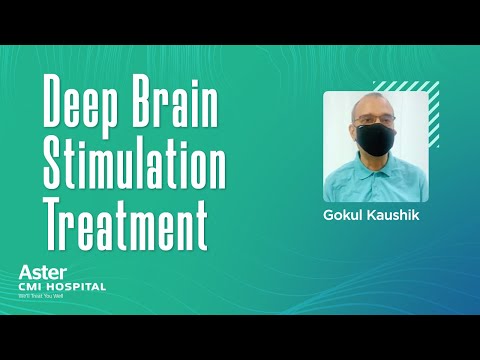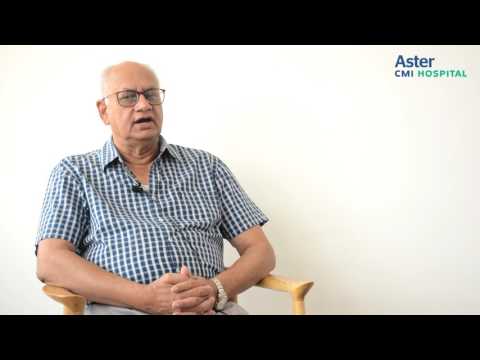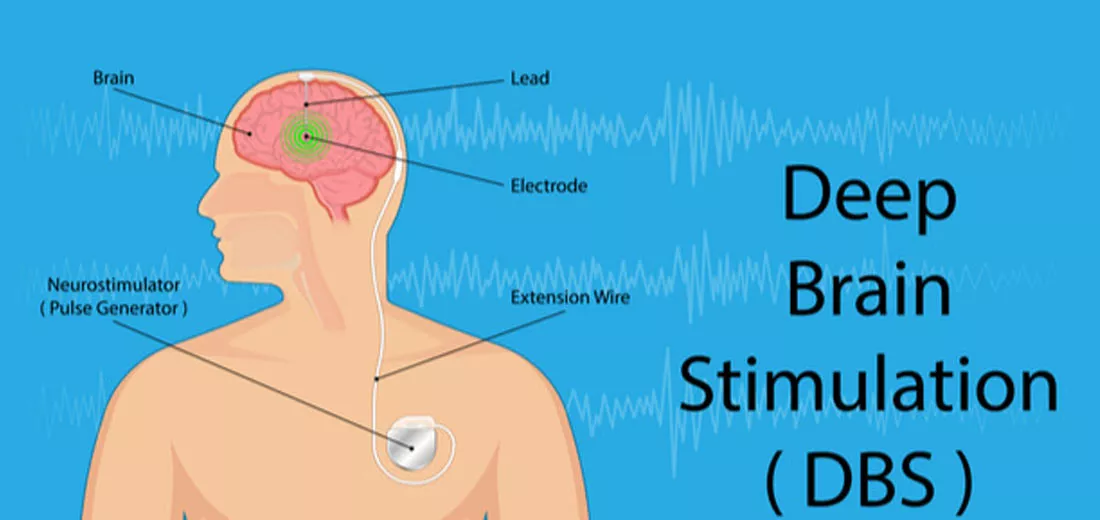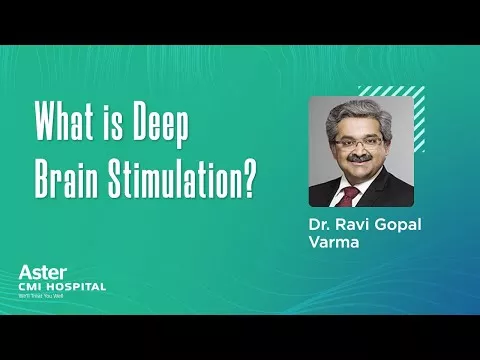Deep Brain Stimulation (DBS) is a highly advanced surgical procedure designed to address and alleviate the symptoms of certain neurological conditions. This intricate surgery involves the implantation of a specialized device in the brain that emits controlled electrical signals. This device consists of electrodes carefully positioned deep within the brain and is interconnected with another device akin to a pacemaker but designed specifically for the brain. This "brain pacemaker" sends precise electric pulses to modulate and regulate brain activity, effectively managing various neurological conditions.
DBS is a groundbreaking option for individuals suffering from conditions such as Parkinson's disease, dystonia, essential tremor, and more. These conditions often manifest as debilitating symptoms, including tremors, slowness of movement, muscle stiffness, and difficulty walking. What makes DBS particularly remarkable is its potential to significantly reduce the severity of these symptoms, offering patients an improved quality of life.
In the DBS procedure, a minuscule electrode, essentially a specialized wire, is delicately inserted into the brain. This electrode is then connected to a compact device known as a neurostimulator, which is implanted either in the chest or abdomen. Once activated, the neurostimulator emits mild electrical currents through the electrode, targeting the specific region of the brain responsible for the troubling symptoms. By doing so, it effectively manages and corrects the abnormal nerve signals that give rise to symptoms like tremors and rigidity.
DBS isn't limited to a single condition; it has demonstrated success in treating a range of neurological disorders, including Parkinson's disease, essential tremor, dystonia, epilepsy, and obsessive-compulsive disorder.
When you choose Aster CMI Hospital for DBS, you're opting for the highest standards of care for neurological conditions. Our team of medical experts is not only highly experienced but also extensively trained in DBS procedures. We offer the expertise necessary to ensure a successful outcome.
At Aster CMI Hospital, this intricate surgery is meticulously performed by a team of distinguished experts, each contributing their specialized knowledge and skills to ensure the best possible outcomes.
Dr. Ravi Gopal Varma, the Director of the Aster Global Institute of Neurosciences and Lead Consultant in Neurosurgery, leads the way in DBS procedures. With extensive experience and a commitment to precision, Dr. Varma ensures that patients receive the highest standard of care.
Dr. Nirmala S, a Consultant in Neurosurgery, plays a crucial role in enhancing the quality of care and outcomes. Her specialized expertise contributes to the comprehensive approach of our DBS team.
Additionally, we have Dr. Madhusudan G, a Lead and Senior Consultant in Plastic Surgery, who plays a pivotal role in cases where plastic reconstructive and aesthetic surgery is required as part of the DBS procedure. Dr. Madhusudan's expertise ensures that patients receive comprehensive care for their specific needs.
Together, our multidisciplinary team collaborates seamlessly to provide you with the highest level of care and expertise throughout your DBS journey. At Aster CMI Hospital, we are dedicated to your well-being and committed to facilitating a successful treatment journey, ensuring the best possible outcomes for your health and quality of life.
Furthermore, our commitment to personalized care means that each patient receives treatment tailored to their specific requirements. This guarantees a high level of attention and support throughout the entire process. We prioritize your safety, adhering to strict infection control protocols to ensure a secure healthcare environment.
In choosing Aster CMI Hospital for DBS surgery, you are selecting a healthcare provider that is dedicated to your well-being and committed to facilitating a successful treatment journey. Your health, comfort, and recovery are our top priorities, and we provide unwavering support at every step of the way.
FAQs
At Aster Hospitals we provide the highest quality of care and a transformative experience for all your healthcare needs. With our network of multi-speciality hospitals, specialised doctors, and world-class technology, we bring global standards of medical care to our patients.
Is the Deep Brain Stimulation (DBS) A Well Established form of Therapy ?
This therapy started developing in 1987 and is backed by decades of research, innovation, and experience. There is a lot of clinical evidence and it is supported by 5 Level 1 clinical studies—the highest quality of evidence. As of 2017, more than 150,000 people have received Deep Brain Stimulation (DBS) worldwide.
What Are The Benefits Of Deep Brain Stimulation (DBS) In Parkinson’s Disease?
The following are 6 major outcomes of the Deep Brain Stimulation (DBS) procedure:
- Reduces dyskinesia and fluctuations
- Up to 5 additional hours of good movement without dyskinesia
- Treats tremors and rigidity
- Improves activities of daily living
- Works day and night
- Improves quality of life.
Are You A Candidate For Deep Brain Stimulation (DBS)?
A lot of research has gone into finding the a suitable patient for Deep Brain Stimulation (DBS). Preliminary screening can be done by answering following four questions to see if Deep Brain Stimulation (DBS) therapy may be useful for you.
- Are your medicines not able to control your symptoms completely throughout the day – Yes/No
- Is troubling dyskinesias (involuntary excessive movements) becoming a problem for you? – Yes/No
- Has your frequency and dosage of DA drugs increased in the last few months? – Yes/No
- Are drug combinations causing side effects such as: sleepiness, nausea, hallucinations, confusion/other thinking problems, lightheadedness upon standing, behavioral/personality changes? – Yes/No
"Yes" to some of the questions above provides you a guidance and you should further ask your doctor if Deep Brain Stimulation (DBS) Therapy is right for you. Deep Brain Stimulation (DBS) might be able to help you."Yes" to some of the questions above provides you a guidance and you should further ask your doctor if Deep Brain Stimulation (DBS) Therapy is right for you. Deep Brain Stimulation (DBS) might be able to help you.
What Are the Risk? Safety Profile Of Deep Brain Stimulation (DBS) Therapy?
Deep Brain Stimulation (DBS) has been in use for nearly 30 years. Any possible risks and complications are well known and can be easily predicted. It is a relatively safer procedure with minimal risk.
Our Deep Brain Stimulation (DBS) Speciality Clinic at the hospital can provide you with the detailed information on potential complications and risks involved in the procedure.
Can I Wait For Some Time Before Considering Deep Brain Stimulation (DBS)?
There is a window of opportunity where Deep Brain Stimulation (DBS) is helpful for you. Deep Brain Stimulation (DBS) Therapy is no longer an option when:
- Medications stop improving your symptoms
- There is severe disability.
- Surgery is not advisable for any other contraindication
Think Earlier – A lot of people assume that Deep Brain Stimulation (DBS) Therapy is a last-ditch effort to preserve your way of life. This however is not true, and Deep Brain Stimulation (DBS) should be considered and evaluated when your medications are becoming less effective at controlling your movements. Speaking with a Deep Brain Stimulation (DBS) expert can help you find the right answers - it's never too early to talk with your doctor about Deep Brain Stimulation (DBS), and it's important not to wait too long.
Steps In The Deep Brain Stimulation (DBS) Procedure
- Consultation with our doctors at Aster.
- If Deep Brain Stimulation (DBS) is a treatment option for you, extended examinations are conducted
- Once it has been established that there are no contraindications, and you have provided consent, we can proceed to the admission for the surgery.
- Pre—operative management of medication and preparation are conducted.
- Surgery is performed, and patients are usually kept awake with light sedation, to better test brain functions, effects and side effects.
- Patients are then introduced to the Deep Brain Stimulation (DBS) neurostimulator, it‘s programming, and functional testing
- Transfer to a rehabilitation clinic, if required.
- Regular aftercare for outpatients (at least once a year) and follow-up care for inpatients, if needed.
Patient Stories
Our patients are our best advocates, hear the inspiring stories of their treatment journey
Blogs
The source of trustworthy health and medical information. Through this section, we provide research-based health information, and all that is happening in Aster Hospital.








